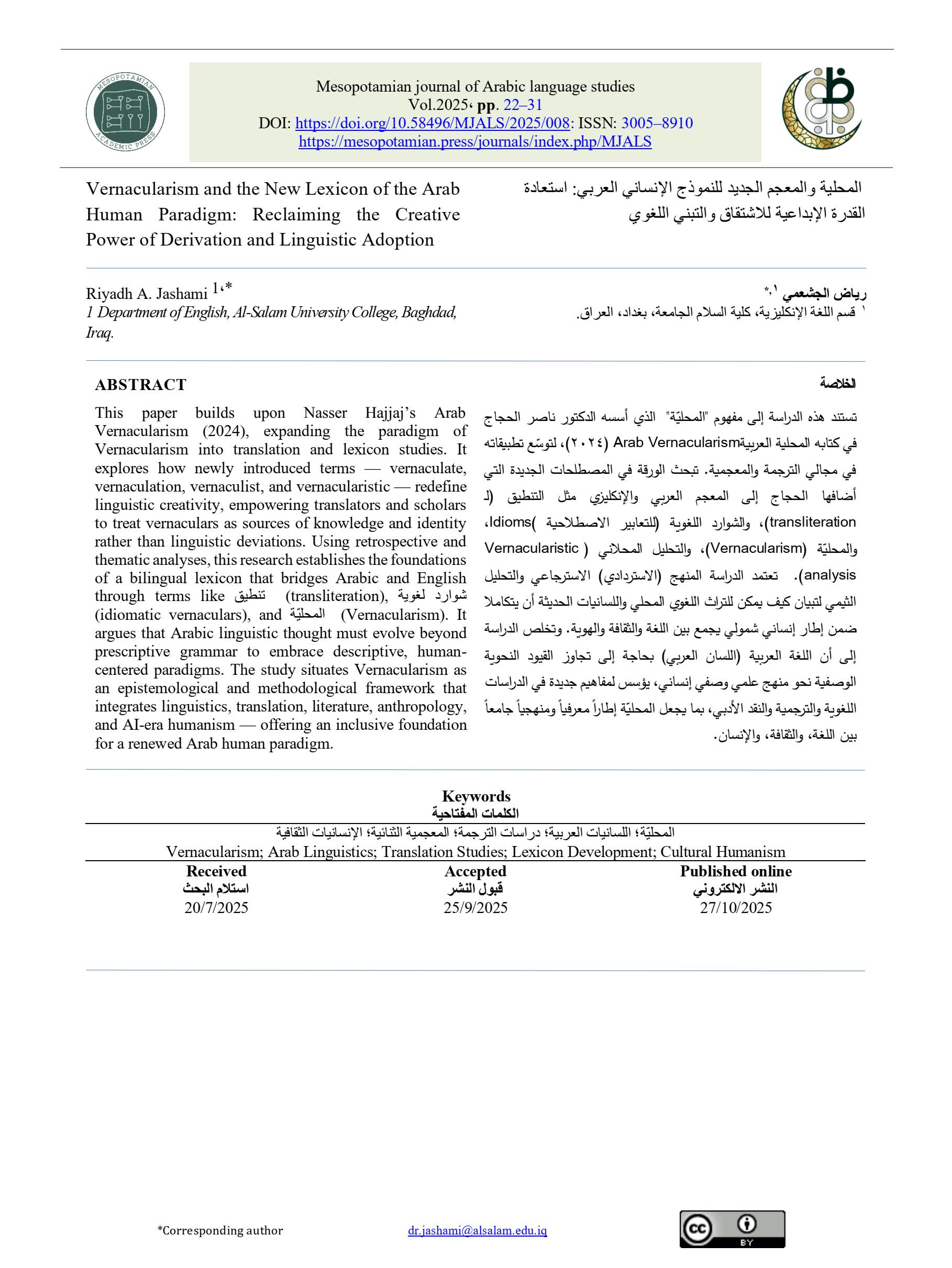Vernacularism and the New Lexicon of the Arab Human Paradigm: Reclaiming the Creative Power of Derivation and Linguistic Adoption
Main Article Content
Abstract
This paper builds upon Nasser Hajjaj’s Arab Vernacularism (2024), expanding the paradigm of Vernacularism into translation and lexicon studies. It explores how newly introduced terms — vernaculate, vernaculation, vernaculist, and vernacularistic — redefine linguistic creativity, empowering translators and scholars to treat vernaculars as sources of knowledge and identity rather than linguistic deviations. Using retrospective and thematic analyses, this research establishes the foundations of a bilingual lexicon that bridges Arabic and English through terms like تنطيق (transliteration), شوارد لغوية (idiomatic vernaculars), and المحليّة (Vernacularism). It argues that Arabic linguistic thought must evolve beyond prescriptive grammar to embrace descriptive, human-centered paradigms. The study situates Vernacularism as an epistemological and methodological framework that integrates linguistics, translation, literature, anthropology, and AI-era humanism — offering an inclusive foundation for a renewed Arab human paradigm
Article Details
Issue
Section

This work is licensed under a Creative Commons Attribution 4.0 International License.
